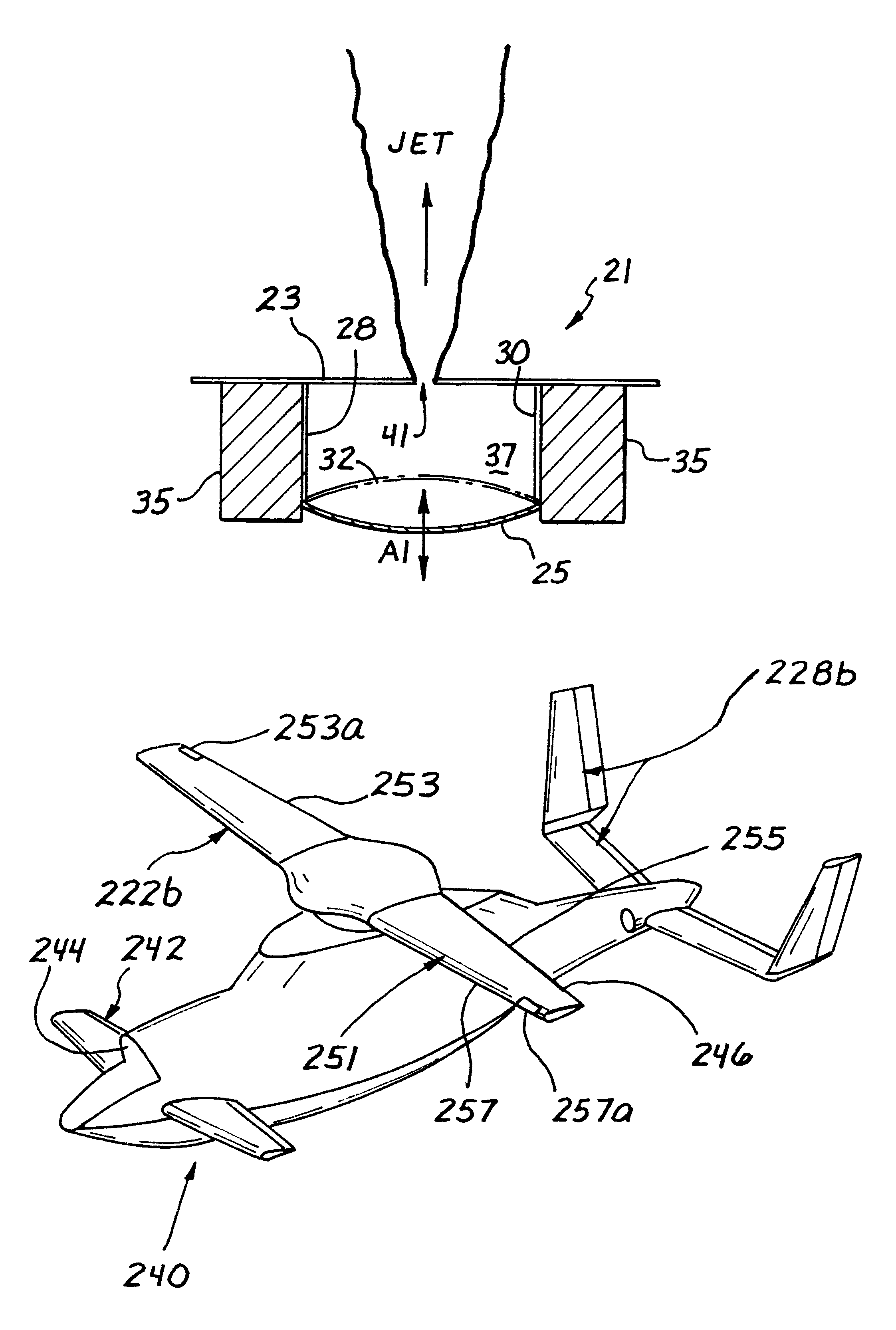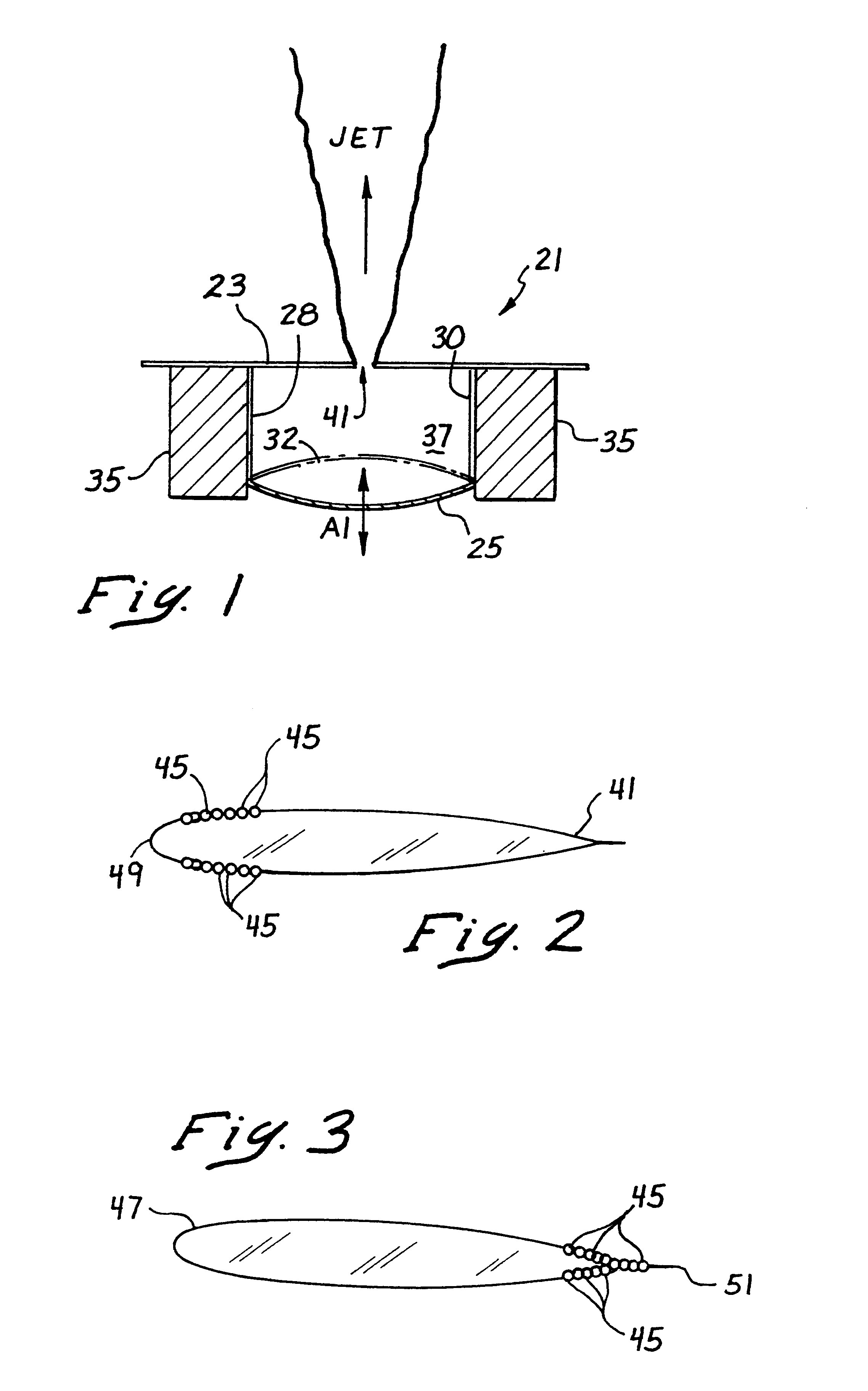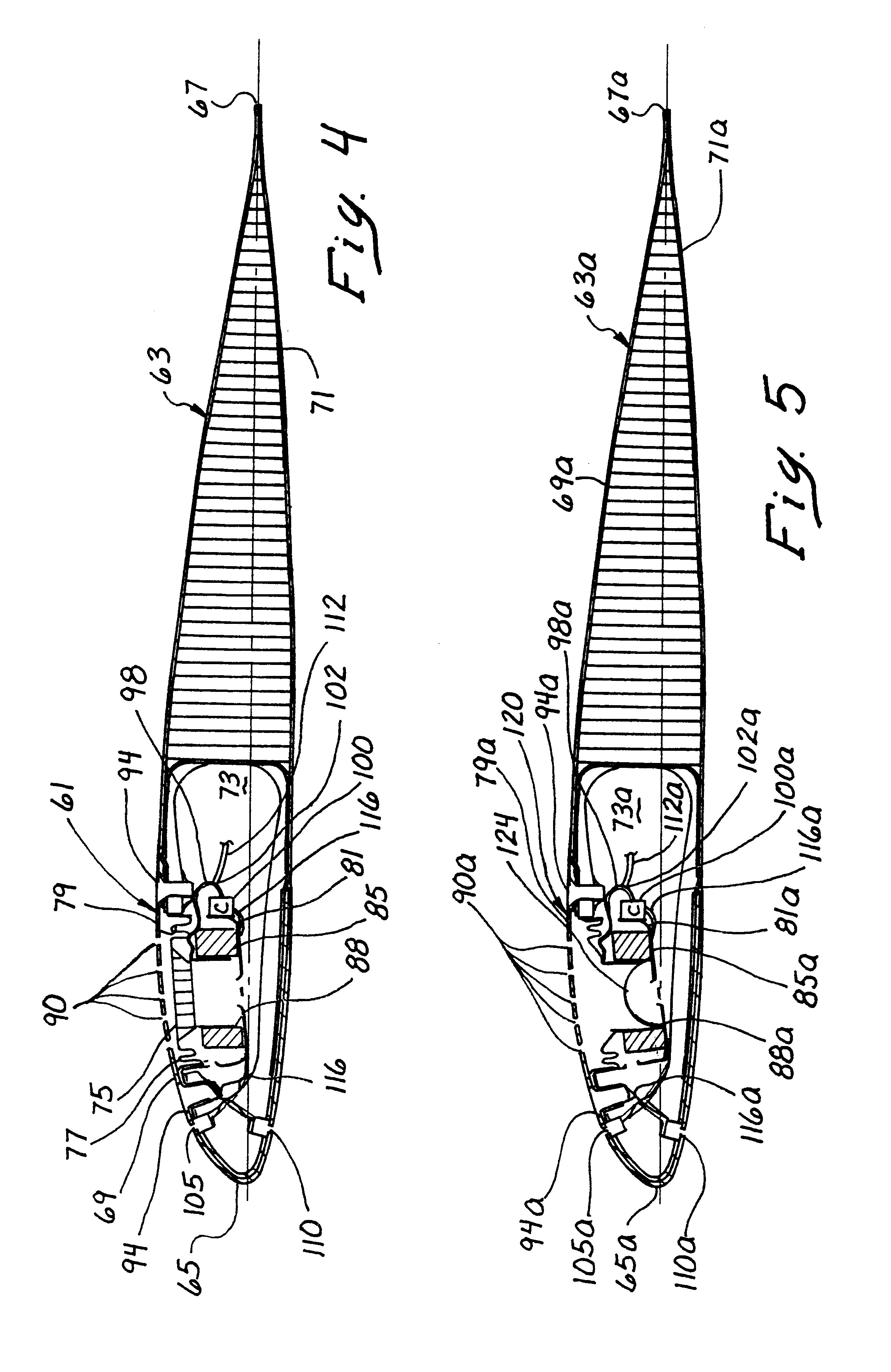Oscillating air jets for implementing blade variable twist, enhancing engine and blade efficiency, and reducing drag, vibration, download and ir signature
a technology of variable twisting and oscillating air jets, applied in the direction of rotors, vessel parts, vessel construction, etc., can solve the problems of increasing mechanical complexity of aircraft, limited in the ability to respond quickly and efficiently, and inconvenient us
- Summary
- Abstract
- Description
- Claims
- Application Information
AI Technical Summary
Problems solved by technology
Method used
Image
Examples
Embodiment Construction
Referring now more particularly to the drawings, FIG. 1 illustrates an oscillating air jet assembly 21 which is disposed on an aerodynamic surface 23. The assembly 21 comprises a diaphragm 25 formed of a piezoelectric material. The diaphragm 25 is preferably supported between a first conductor 28 and a second conductor 30, and is movable in the directions of the arrows Al between a first position indicated by the reference numeral 25 and a second position indicated by the phantom lines 32.
A chassis 35 secures the first conductor 28 and the second conductor 30 to the diaphragm 24. An oscillating current is provided to the diaphragm 25 via the first conductor 28 and the second conductor 30, to thereby electrically stimulate the diaphragm 25 to oscillate in directions of the arrows Al.
Movement of the diaphragm from a first position to a position 32 shown in phantom produces a positive pressure within the sealed chamber 37, and movement of the diaphragm in the opposite direction produce...
PUM
 Login to View More
Login to View More Abstract
Description
Claims
Application Information
 Login to View More
Login to View More - R&D
- Intellectual Property
- Life Sciences
- Materials
- Tech Scout
- Unparalleled Data Quality
- Higher Quality Content
- 60% Fewer Hallucinations
Browse by: Latest US Patents, China's latest patents, Technical Efficacy Thesaurus, Application Domain, Technology Topic, Popular Technical Reports.
© 2025 PatSnap. All rights reserved.Legal|Privacy policy|Modern Slavery Act Transparency Statement|Sitemap|About US| Contact US: help@patsnap.com



